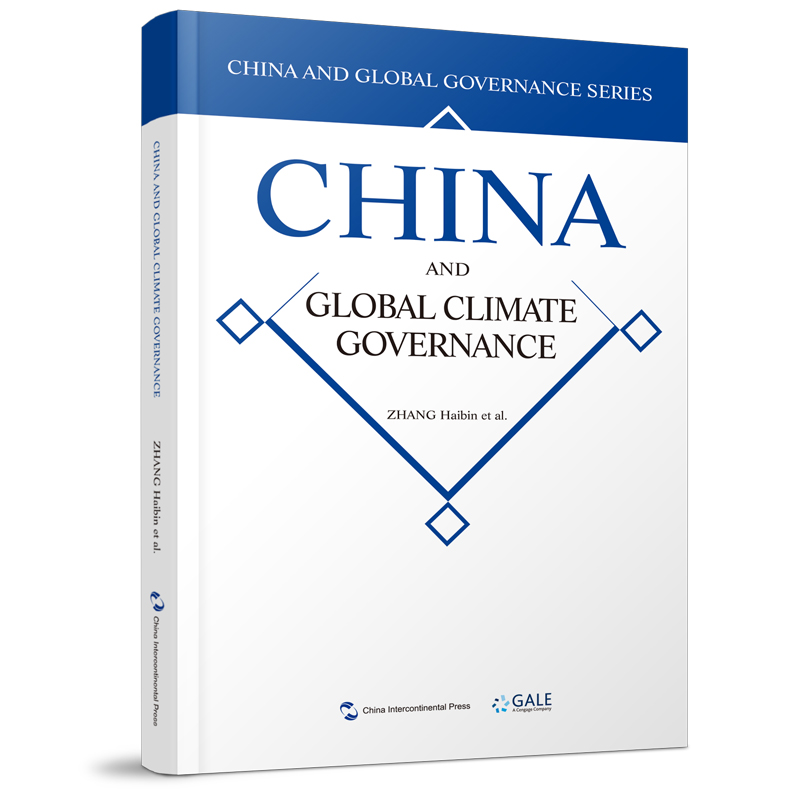
出版社: 五洲传播
原售价: 118.00
折扣价: 64.90
折扣购买: 全球治理的中国方案丛书-全球气候治理的中国方案(英)
ISBN: 9787508542324

张海滨,北京大学国际关系学院副院长兼国际组织与国际公共政策系主任、教授、博士生导师,北京大学全球健康发展研究院副院长,北京大学国际组织研究中心主任,北京大学社科学部学术委员。主要研究领域:国际组织与全球治理、全球环境与气候治理和中国环境外交。兼任中国商务部贸易与环境专家组成员、德国外交部气候与安全专家组成员、中国联合国协会常务理事、中国气象学会气候变化与低碳发展委员会委员、“未来地球计划”中国国家委员会委员。长期参加联合国气候大会,2014年以来一直作为中国政府代表团成员参加联合国环境谈判。在中外学术刊物上发表论文100多篇。获北京市哲学社会科学优秀成果奖一等奖等省部级奖励4项。承担国家重点研发计划、国家科技支撑计划、国家自然科学基金等各类课题40多项。 Zhang Haibin, professeur, directeur de thèse, doyen de la faculté des relations internationales et chef du département des organisations internationales et des politiques publiques internationales, Université de Pékin_; membre académique de la faculté des sciences sociales de ul’niversité de Pékin. Ses recherches concernent notamment : les organisations internationales et la gouvernance mondiale, l’environnement mondial, la gouvernance du climat et la diplomatie environnementale chinoise. Il est également membre du groupe d’experts sur le commerce et l’environnement relevant du ministère chinois du Commerce, membre du groupe d’experts sur le climat et la sécurité du ministère allemand des A_aires étrangères, membre permanent du conseil de l’Association chinoise pour les Nations unies, membre du comité sur le changement climatique et le développement bas carbone de la Société de Météorologie de Chine, et membre du comité national chinois de iln’ itiative ? Future Earth ?. Il participe depuis longtemps aux conférences de l’ONU sur le climat et est membre de la delegation chinoise aux négociations environnementales de l’ONU depuis 2014. Il a publié plus de 100 articles dans des revues académiques chinoises et étrangères. Il est titulaire de quatre prix aux échelles provinciale et ministérielle, dont le premier prix d’innovation en matière de philosophie et de sciences sociales. Il est responsable de plus de 40 projets dans le cadre du Programme national clé de recherche et de développement, du Programme national de soutien scienti_que et technologique et de la Fondation nationale pour les sciences de la nature.
Global climate governance entails dealing with climate change at multiple levels all at once, from the subnational level to the global level, through coordination and cooperation among states and other entities in the international community. Its ultimate objective is to keep the concentration of greenhouse gases (GHGs) in the atmosphere under a certain limit, so as not to endanger the climate system. In sum, its core mission is to reduce or eradicate the threat posed to mankind by climate change through multivariate and multilayered cooperation and shared governance across the world. The United Nations Conference on the Human Environment held in 1972 is generally acknowledged to be the inception of global environmental governance. In 1990, the initiation of international climate change talks in the UN marked the commencement of global climate governance. Over the past 30 years, great progress has been made in global climate governance, which has now become a key issue and field of international cooperation in human development, even likened to a mirror of global governance. At the same time, global climate governance faces numerous challenges, and has a long way to go before it fulfills its mission. To understand China’s role in global climate governance, one must contextualize it in the history of global climate governance. This chapter hence addresses several questions: What is the history of global climate governance? What are the challenges facing global climate governance today? The discussion in this book centers around the UN climate change talks, which represent the core of global climate governance, though they do not encapsulate it in totality. “全球治理的中国方案”丛书围绕“治理”“和平”“发展”三个最重要的主题,采取“3+7”的模式,共分为十分册。前三分册作为统领,围绕三大核心主题,综述中国完善全球治理体系的理念与实践,介绍中国参与全球治理的战略框架;其余七分册,按照当前全球治理的七大互动领域,包括金融安全、能源安全、气候治理、国际发展援助、人权保障、网络空间安全治理、国际反恐合作等,分别诠释全球治理具体领域的中国方案。 In the ten titles forming this series, the authors elaborate on China’s perspectives on global governance, peace, and development, as well as seven other important aspects of global governance—financial security, energy security, climate governance, foreign aid, cybersecurity, human rights protection, and anti-terrorism.


